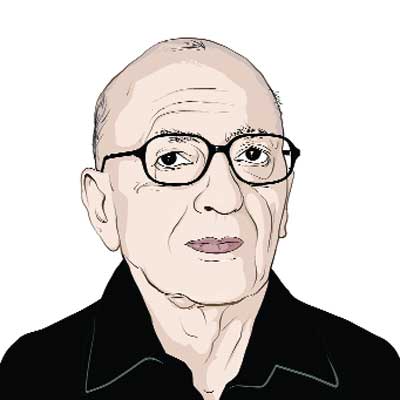Opinion Remembering Emergency,34 years on
Americans of a certain age still remember what they were doing when John F. Kennedy was shot dead.
Americans of a certain age still remember what they were doing when John F. Kennedy was shot dead. Similar is the position of those of us who,on the morning of this day 34 years ago,heard first from the BBC and then from Indira Gandhis broadcast that India was under a state of Emergency. A 19-month nightmare followed notwithstanding her bland assurance that there was nothing to panic about.
Though stunning,the Emergency was in a way a culmination of extraordinarily tumultuous,often violent,events that included Nav Nirman in Gujarat and the formidable JP Movement,so named because it was led by the highly respected Gandhian leader,Jayaprakash Narayan,better known as JP. He was convinced that authoritarian Indiras continuance in office was incompatible with the survival of democracy in India. She believed equally firmly that fascist JP was acting in pursuance of a foreign conspiracy against her and the country. Basically,her problem was that shortly after her apotheosis in 1971,her government had started losing its moral authority because of egregious corruption by her cohorts. A massive economic crisis,compounded by the 1973 oil shock,had added to her vulnerability. Yet she had enough following among the people and enough draconian laws at her disposal to be able to cope with the challenge. What stumped her was the judgment of the Allahabad high court.
On June 12,1975,Justice Jagmohan Lal Sinha,convicted her of corrupt election practices, set aside her election to the Lok Sabha and debarred her from public office for six years. He also gave all concerned 20 days to make alternative arrangements. Almost literally all hell broke loose. The charges against her were trivial,but so strong was the sentiment against her that the country resounded with the cry: Indira Must Go.
For a brief moment she did weigh the option of stepping down temporarily,installing a loyal lieutenant in the saddle and returning to her office after winning her appeal in the Supreme Court. But her younger son Sanjay already hailed as the crown prince instantly put paid to this nonsensical talk. Mass hysteria took over on both sides of the bitter divide.
On June 25,Justice V. R. Krishna Iyer,vacation judge of the apex court,gave the prime minister only a conditional stay,not an absolute one. At a mammoth public meeting at Delhis Ramlila Grounds,JP and Morarji Desai,Indiras arch rival,who had led the entire flock of opposition parties to JPs camp,were ecstatic that she had no option but to throw in the towel.
At the midnight hour,Indira Gandhi delivered her counter-stroke that she,her son Sanjay and only a few trusted ministers and officials had planned in total secrecy. The pliant president,Fakhruddin Ali Ahmed,signed the proclamation even though the cabinet had yet to approve it. JP and Morarjibhai were roused from their beds and driven to comfortable lodgings for detention. Thousands of others were hauled to prison roughly. As if on cue,lights in Delhis fleet street went out. No newspaper appeared the next morning when strict censorship was imposed. The rest is history. Although 140,000 persons were arrested in all,the number of prisoners never exceeded 100,000 as arrests and releases took place simultaneously. Yet,this is twice the number the British had imprisoned during the 1942 Quit India movement. Twenty-two Emergency prisoners died in jail,and there were some cases of torture. Neither of these abominations is unknown in this country even at the best of times.
Quasi-forced vasectomies and evictions of slum-dwellers apart,the worst atrocity was the total suspension of fundamental rights. Attorney-General Niren De admitted in the Supreme Court that though this revolted his conscience,under the law there was no remedy if a policeman shot dead a citizen.
This explains why in my 1989 biography of Indira Gandhi I have described the Emergency as her cardinal sin. There is no reason to amend this opinion. Yet,it is only fair to admit that over three and a half decades,the perspective on the Emergency has changed greatly for five reasons.
The first that wasnt even acknowledged at that time was that Indira Gandhi herself had called fresh elections though there was no ostensible pressure on her to do so. Predictably,she lost humiliatingly. To the successor Janata government she had been consigned to the dustbin of history. But she was back in power in three years flat,partly because the Janata,instead of prosecuting her and her son for Emergency excesses,persecuted them.
Secondly,even in the eighties,an informed and objective foreign scholar,Granville Austin,had recorded that ugly though the Indian Emergency was,in 1975-76,Delhi wasnt like Berlin under Hitler,Moscow under Stalin,Beijing under Mao and so on. Then few among the Indian intelligentsia agreed with him. Today,a remarkably large number do. Historian Bipan Chandra,sociologist Ande Beteille and author Ramchandra Guha agree that JP and Indira scripted the Emergency jointly. The anarchy that JP promoted in the name of total revolution and the abuse of power by the prime minister and her son were the two sides of the same coin. Thirdly,more than half the Indian population was born after the Emergency. It knows little about it,and cares even less. Indeed,this generation has often voted Indira Gandhi as the best prime minister we have had. In my opinion this is a wrong verdict; she is the second best after her illustrious father.
Fourthly,right from 1977,opposition parties,led by the BJP or its earlier avtar,the Jan Sangh,used to observe every anniversary of the Emergency to denounce the Congress and besmirch Indiras image. Then this practice started tapering off. In 2007 something startling happened. Mulayum Singh Yadav who,along with a host of political leaders,had spent the entire Emergency period in jail,thundered that what Mayawati as chief minister of Uttar Pradesh was doing was a hundred times worse than the worst that took place during the Emergency.
Fifthly and finally,whatever the Emergencys faults,which were many and grievous,its biggest benefit is that it just cant be repeated.
The writer is a Delhi-based political commentator





